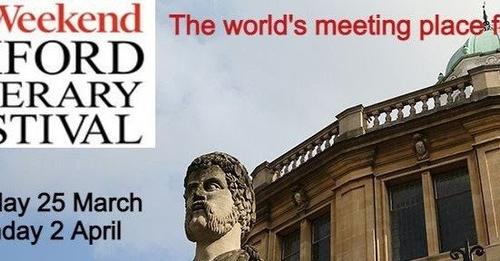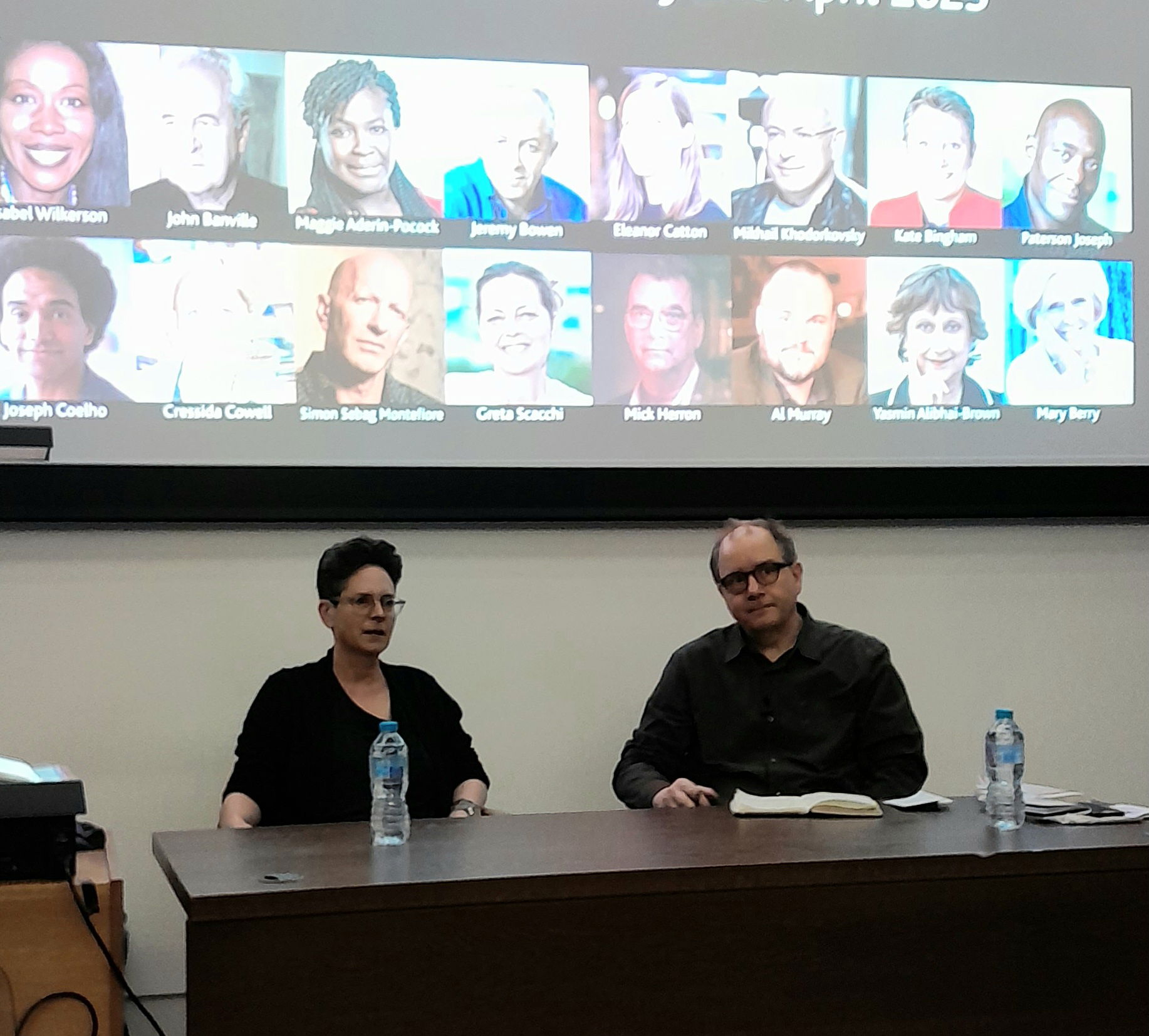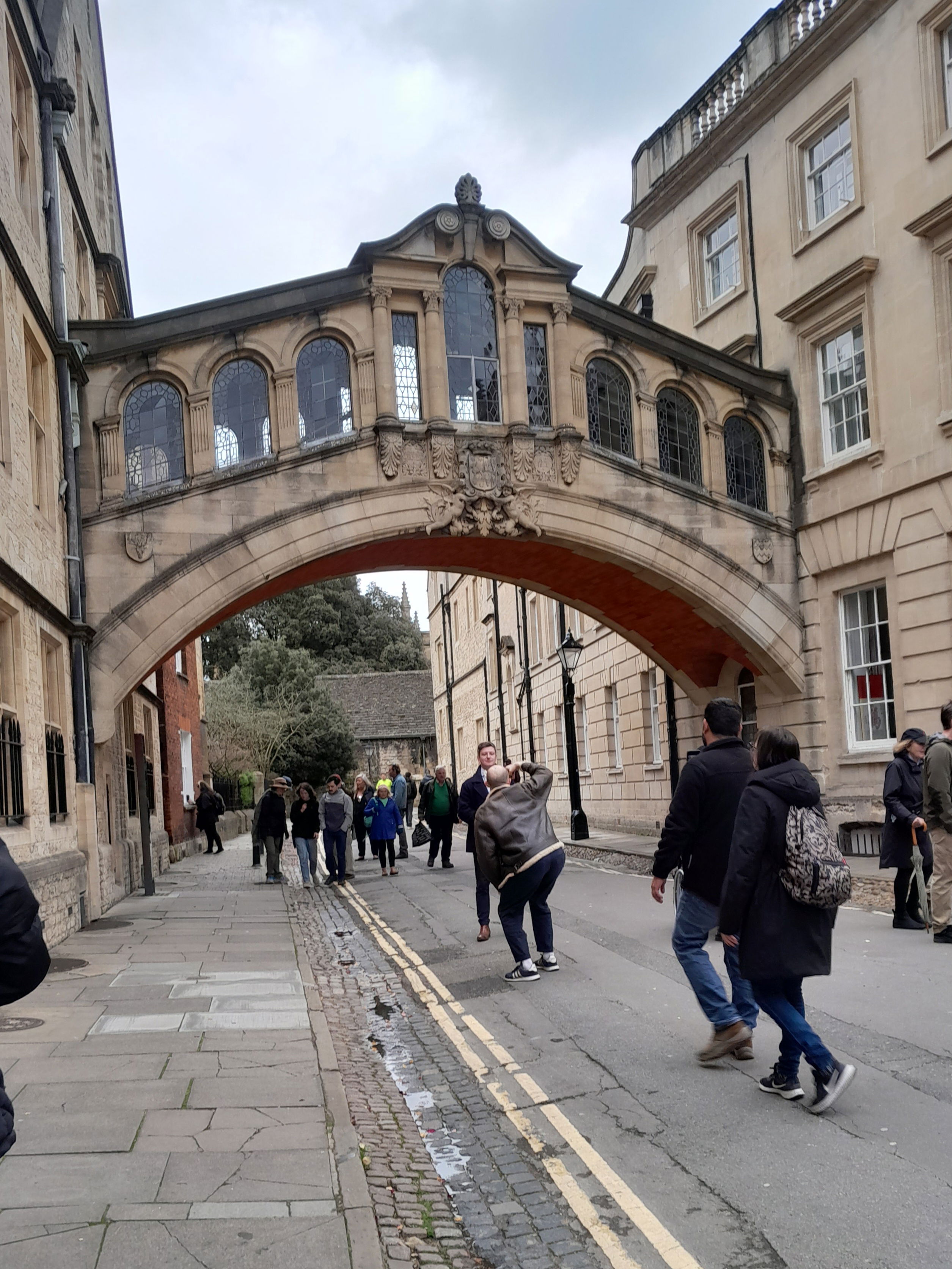Erica Wagner on T.S.Eliot at Oxford Literary Festival

Mary and Mr Eliot: A Sort of Love Story
Erica Wagner Interviewed by Frederick Studemann
Saturday, 1 April 2023

As archives are being thrown open to research, we are learning more and more about T.S.Eliot. No sooner had we recovered from the surprise revelation of his long-term, long-distance love affair with Emily Hale, than Erica Wagner publishes this account of his relationship with another woman, Mary Trevelyan, whose “close friendship” with him lasted for twenty years. While Eliot’s first wife Vivienne was consigned to the asylum, it seems that he found another far more compatible soul to pass his free time with.
Mary Trevelyan was, like Eliot, a devout member of the Church of England, and she worked running a student Christian organisation that welcomed and fostered the studies of foreign students in London. She enjoyed all the same cultural activities – together they went to theatres, cinemas, concerts and visits to beautiful places. He could not drive, so he bought her a car and she it seems drove him everywhere. They went to church together and enjoyed many cosy evenings, with bacon and egg suppers, gin and cigarettes. When they were apart, they exchanged frequent letters, and while in America in 1946 he wrote to her that he had managed to get ten pairs of nylon stockings for her, a gift that some would say indicated a certain type of intimacy.
Mary supported “Tom” through all his health problems, even consulting his doctor for him and allowing him to put her name down as his emergency contact in case of sudden hospital admission. She also fell in love with him, and he could not have been unaware of this. She totally accepted his religious belief that he could not divorce his wife or re-marry until her death. So this relationship, like that with Emily, remained unconsummated.
But when Eliot’s wife finally did die, Mary Trevelyan was shocked to read in the newspapers that he had suddenly married his secretary Valerie, a woman 38 years his junior. Her pain and disappointment were acute. She had known nothing of any intentions of that kind, any more than of his correspondence with Emily Hale.
So what do we think of Eliot’s treatment of Mary? Erica Wagner admits that in researching the letters, photographs, playbills and postcards that Mary meticulously kept for twenty years, she often found that Eliot was not very likeable. This cold-hearted, sexually frigid philanderer surely hurt and used women in his way just as callously as many a hot-blooded libertine. He needed a wife, or at any rate, a female companion to fulfil many of the functions of a wife, and this he found in Mary. He needed an ideal Muse, an untouchable Blessed Damozel, who would never be pulled down from her pedestal to the level of a fleshly spouse, and this he found in Emily Hale. He had once needed Vivienne as an essential critic and editor of his poetry, and he later needed Valerie as a youthful companion to stop him from feeling old. What they needed took second place and when he had finished with them, he ruthlessly discarded them.

I remember when Eliot was held up by English Literature critics as the epitome of “modernism”. Yet what about him was modern? He was a man of the past, in love with a noble Christian European tradition, that of Dante and Petrarch, Shakespeare and Milton, Pope, Dryden and Dr. Johnson. His erudition enabled him to retreat into the past, and see everything about the 20th century as one huge catastrophe – not just the First World War, which did tear a civilisation apart, but everything. He took no interest in science and felt no sympathy at all with those millions who were aspiring to escape lives of poverty and drudgery in the slums. He loathed the idea of women contributing anything to culture or public life. So how was he modern? Were these not reactionary attitudes hiding behind a modernist façade? He mourned the passing of fundamentalist religion and could not appreciate that Christianity might need to re-invent itself. He believed in the religion of Lancelot Andrewes, pet prelate of Charles I, not in the religion of Sue Ryder, Leonard Cheshire, Peter Benenson, Mother Theresa and Abbé Pierre. Did he ever say anything after the Second World War to repudiate his earlier anti-Semitic writings?
Nothing can undo the influence that Eliot, helped by Vivienne and Ezra Pound, had on 20th-century poetry. Most of the significant poets who followed him reveal his stamp. But it is not a loveable stamp and although Cats is still a great West End hit, Eliot was not in every way an innovator.
I am sure that Erica Wagner’s book will be very widely read and will impact on the way people read and interpret Eliot in future.
https://oxfordliteraryfestival.org/literature-events/2023/april-1/mary-and-mr-eliot-a-sort-of-love-story https://oxfordliteraryfestival.org/authors-speakers/2023/erica-wagner